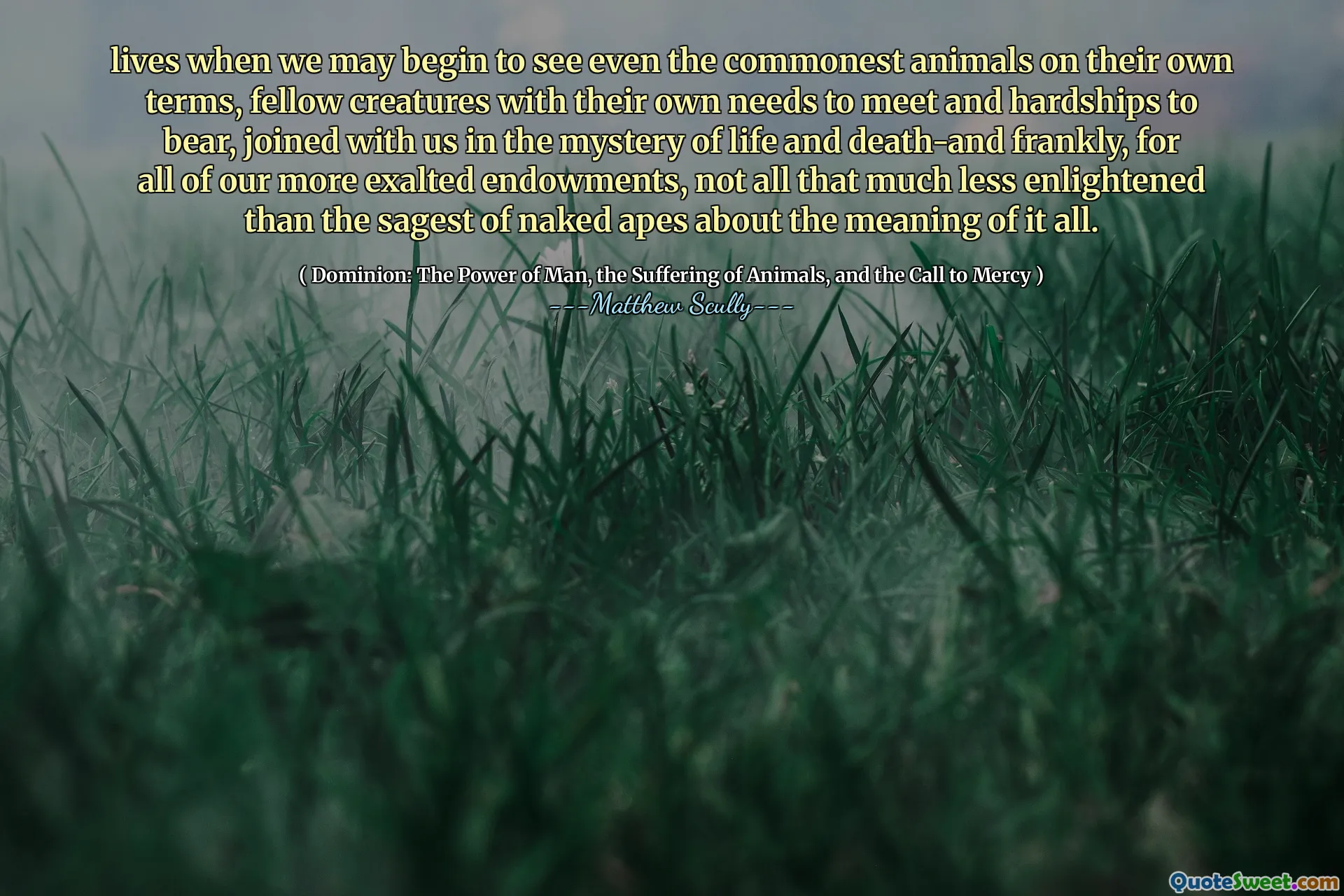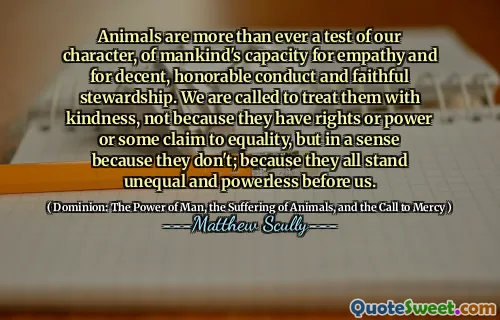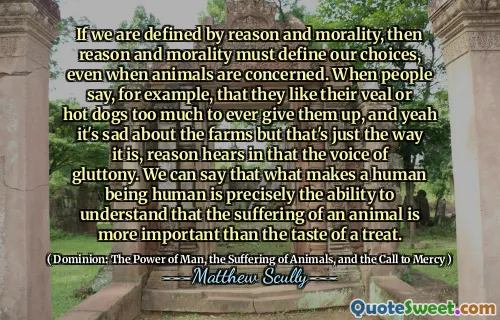
lives when we may begin to see even the commonest animals on their own terms, fellow creatures with their own needs to meet and hardships to bear, joined with us in the mystery of life and death-and frankly, for all of our more exalted endowments, not all that much less enlightened than the sagest of naked apes about the meaning of it all.
In Matthew Scully's "Dominion: The Power of Man, the Suffering of Animals, and the Call to Mercy," the author invites readers to view animals as beings with their own experiences, needs, and struggles. He emphasizes the shared existence of all creatures in the complex and often harsh realities of life and death. By recognizing this connection, we may start to appreciate animals on their own terms rather than merely as subjects of human interest or exploitation.
Scully challenges the idea that humans, with their advanced intellect, possess a superior understanding of life's meaning. He suggests that, despite our supposed enlightenment, animals may hold insights into existence that merit respect. This perspective urges a deeper compassion for animals, promoting a more ethical relationship that acknowledges their intrinsic value and shared journey through life.











